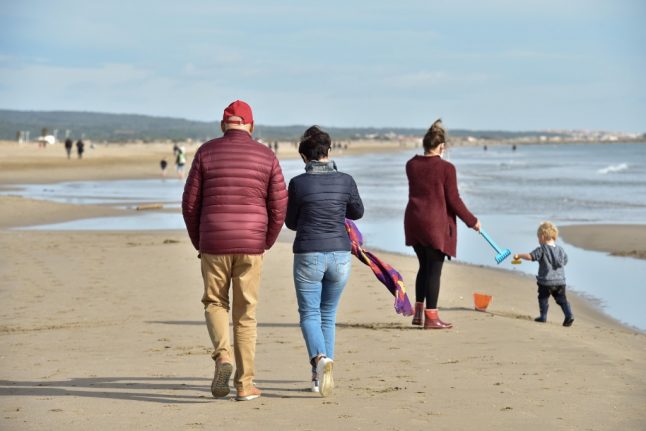France is generous with its public holidays with most months having at least one.
In total there are 11 public holidays every year, apart from in Alsace-Lorraine where people get 13 days off for complicated historical reasons to do with wars and Germany – find out more here.
READ ALSO These are the days off work you are entitled to in France
However there is one drawback to the French holiday calendar – all holidays are taken on the day they fall on that year, rather than being moved to the nearest Monday as is the case in some other countries.
This means that in France there are ‘good’ holiday years and ‘bad’ ones – and unfortunately 2021 is a bad one.
If a public holiday falls on a Monday or a Friday, it means a nice long weekend. If it falls on a Tuesday or a Thursday it means that people can faire le pont (do the bridge) or take one day of their annual holiday entitlement to create a nice four-day break.
But if the holiday falls on a Saturday or a Sunday, then the holiday is lost.
In 2021 both of the May holidays – the workers’ holiday on May 1st and VE day on May 8th – fall on a Saturday, which means no extra days off in May.
The religious festival of Assumption on August 15th falls on a Sunday.
But worst of all, Christmas also falls on a Saturday. December 25th is the only official holiday day over Christmas in France – December 24th and 26th are normal working days, although many companies do allow employees extra time off over this period – so that means no extra day off for Christmas.
There’s also not much opportunity to faire le pont as four holidays fall on either a Monday or a Friday.
Holidays that can be ‘bridged’ in 2021 are Ascension Day on Thursday, May 13th and Armistice Day on Thursday, November 11th.
There is only one holiday on a Wednesday – the fête nationale on July 14th – which means only one opportunity to faire le viaduc (do the viaduct) and take two days off the create a longer holiday.
Ironically, 2020 was a good year for holiday dates, although as it turned out we spent many of them stuck in our homes on lockdown.
Here is the full list of 2021 holidays in France
- Friday, January 1st – New Year’s Day
- Monday, April 5th – Easter Monday
- Saturday, May 1st – May Day
- Saturday, May 8th – VE Day
- Thursday, May 18th – Ascension Day
- Monday, May 24th – Pentecost*
- Wednesday, July 14th – Bastille Day
- Sunday, August 15th – Assumption
- Monday, November 1st – All Saints
- Thursday, November 11th – Armistice Day
- Saturday, December 25th – Christmas
* Pentecost is a curious holiday which was once a public holiday, then wasn’t and is now a holiday for some people depending on where they work.
READ ALSO Pentecost: The French public holiday when people work for free



 Please whitelist us to continue reading.
Please whitelist us to continue reading.
Ascension Day is surely Thursday May 13th 2021?